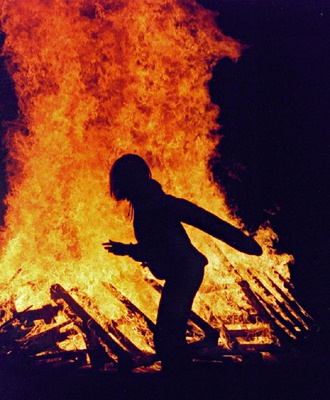All Nonfiction
- Bullying
- Books
- Academic
- Author Interviews
- Celebrity interviews
- College Articles
- College Essays
- Educator of the Year
- Heroes
- Interviews
- Memoir
- Personal Experience
- Sports
- Travel & Culture
All Opinions
- Bullying
- Current Events / Politics
- Discrimination
- Drugs / Alcohol / Smoking
- Entertainment / Celebrities
- Environment
- Love / Relationships
- Movies / Music / TV
- Pop Culture / Trends
- School / College
- Social Issues / Civics
- Spirituality / Religion
- Sports / Hobbies
All Hot Topics
- Bullying
- Community Service
- Environment
- Health
- Letters to the Editor
- Pride & Prejudice
- What Matters
- Back
Summer Guide
- Program Links
- Program Reviews
- Back
College Guide
- College Links
- College Reviews
- College Essays
- College Articles
- Back
Three Billboards Outside Ebbing, Missouri
A mother seeks justice for her daughter’s case gone cold. She decides to get the town’s attention by renting out three billboards for a year.
“Rape” is still an untouchable word in most social situations, excepting perhaps the occasional rape joke. The #MeToo and Time’s Up movements in fall 2017 have only recently begun to change that. In the film, Mildred Hayes, played by Frances McDormand, is a woman who will say the word. Mildred wants a more convincing effort from the police to find her daughter’s killer, her daughter Angela, who was raped while dying, then set on fire, and found on the side of a road.
The premise is horribly realistic, or at least it was to me. Mystery rape cases seem to fall through police fingers mindlessly; even when glaring evidence exists to incarcerate people, the guilty are often given laughably lenient sentences. Public attention, Mildred knows, has proven to increase a case’s chance of being solved. She finds three billboards on the road her daughter was found on, and pays to have displayed:
RAPED WHILE DYING
AND STILL NO ARRESTS?
HOW COME, CHIEF WILLOUGHBY?
There’s several other character arcs in the story, and the intersection of all of them is what makes the film surprisingly touching. McDormand is an unquestionable force of nature--even with an Oscar for her performance, she cannot be lauded enough for her portrayal of a mother desensitized, enraged, and at moments fundamentally broken by this murder. Robbie, her son and Angela’s younger brother, sits at the middle of it all. Lucas Hedges portrays perfectly the complex emotions of a brother who’s lost his sister in one of the most bloody, horrific ways possible. He also sits at the crossways (alas, all the road parallels) of a treacherous family dynamic, linked to his abusive, divorced father whom he can’t help but still look up to a bit.
Mildred’s choice to target Chief Willoughby (Woody Harrelson) only complicates things when he decides to take his own life. It’s because Willoughby’s terminally ill with pancreatic cancer, but as the head of police, and a good man, his loss in the department allows police officer Jason Dixon to destabilize even further. Jason is the pathetically weak, ragingly insecure, incompetent officer who becomes locally known for torturing a black boy. His redemption arc is unexpected, and seemingly impossible. He finds he lacks clarity of purpose. And in the end, the symbolism of Jason getting burned by a real building set on fire is almost too good. Like fire, the film itself rages and burns, lathering its flames over innocent and guilty alike, finding some equilibrium in the ashes.
And till the end, the film is a masterpiece with its hair on fire. It’s bitingly satirical, with surprisingly funny moments, and the F-bomb is thrown around like spittle. It’s kind of horrible that the film is funny, given the dark circumstances. On top of that, it maintains humbling grace. One of my favorite scenes from the movie is when Mildred is out tending flowers she’s put by the billboards. In doing so, it’s implied the billboards are symbolic headstones for her daughter’s unjust death. That is, until a deer appears at sunrise or sundown. The sky is soft, and this innocent creature looks back at Mildred, who at this point is just clinging to hope; no leads have been made, despite the riot she’s ignited in town. Mildred muses, self-aware, that the deer is trying to make her believe it’s Angela reincarnated, or that there is a higher justice, and it matters what we do to each other down here. But after the deer leaves, Mildred, who has managed a façade of toughness with her knotted blue bandana, lets her face crumple in. She cries. It’s the story of a mother whose daughter remains wronged, in earth, as her rapist is allowed to walk free. And while the ending might be unsatiating for some, what’s even more unsettling is it’s actually realistic. The mess that the movie makes is masterful and effective. It’s a political turmoil, a dark dark comedy, and one loud sign. Or three. You can’t miss them.

Similar Articles
JOIN THE DISCUSSION
This article has 0 comments.

What does "THHRe" stand for? It's THE HOLY HITCHHIKE’S REVIEW...A shorter version of the Hitchhike, reviews principally concerning books, movies, and music. Enjoy, and let loose your commentary and suggestions below. A new column of THH every Friday!